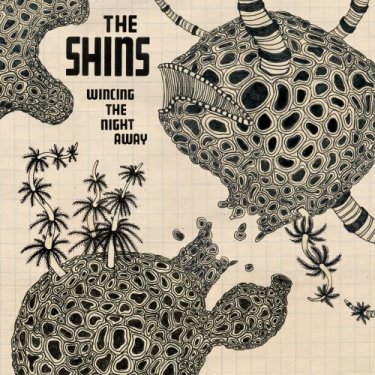For Those About to Rock: Think About Trademark Law (Pt. 2)
Last week, STL blogged about upstart bands who were forced to change their name after they started getting popular. Unfortunately, that’s the point when some other band comes out of the woodwork and claims to have adopted the same name years earlier. Even Nirvana wasn’t immune to this problem.
It’s understandable that a brand new band playing at the corner bar doesn’t think about trademark law when choosing its name. But has any band learned from the painful lessons in trademark law that Nirvana, Dinosaur Jr, Blink 182, and countless others suffered through after they began to achieve commercial success?
The answer is not many. This weekend I searched the PTO database for band names appearing in the College Music Journal’s (CMJ) Top 20 chart for radio play. This list contains the most popular indie bands, some of which are about to make it big-time. Of these 20, only one band has applied for (and in fact obtained) federal trademark registration — the band with the No. 1 record on CMJ’s Top 20: The Shins. Frontman James Mercer owns the registration. (Where that leaves other Shins members Martin Crandall, Dave Hernandez, Jesse Sandoval, and Eric Johnson is probably better left for another post.) No one else has even applied for federal registration, even though the other 19 charted groups undoubtedly perform and sell CDs and t-shirts in many parts of the country. Not even No. 17 The Broken West, which recently changed their name from The Brokedown after receiving a cease-and-desist letter from another band called The Brokedowns.

The Shins: Learning From Others’ Mistakes
Interestingly, this research uncovered a possible future band name dispute — or at least a close call. This week’s No. 8 artist is The Clinic, a Liverpool, UK-based band that released its fifth album last October (and that notably performs wearing surgical masks). Effingham, Illinois, physician Peter Bonutti owns a federal registration for THE CLINIC in connection with his band of the same name. Apparently, The Clinic (US) is Dr. Bonutti’s hobby band, since he likely spends most of his time working as an orthopedic surgeon, heading up his 170-employee clinic, and creating his 159 patented inventions (with 60 more patents pending). Dr. Bonutti’s federal registration (Reg. No. 2489257) claims he first used THE CLINIC in connection with “phonograph records and pre-recorded magnetic tapes, cartridges, compact discs, and cassettes” in July 1999. Luckily for the UK-based band, they formed in 1997 and released their first album in 1998. Assuming they made sales in United States commerce before July 1999, The Clinic (UK) at least would have common law rights to their name here. They may have dodged a bullet.
However, luck really shouldn’t have to matter. As the Canadian Trademark Blog recently wrote:
“Before committing to any new brand, appropriate clearance searches should be conducted. The best new brand in the world may not be of much use if it’s infringing on the rights of a competitor — at the very least, the cost of launching the brand could go up significantly — Apple’s launch of its iPhone brand is a classic example. Apple is fortunate enough to have the legal budget to fight those battles. Many businesses don’t.”
Nor do many musicians. To continue the theme from last week, a little trademark due diligence goes a long way — whether you’re an upstart band or an upstart brand.
Reader Comments (2)
I think that Robert Fripp would be unhappy if my pal's local band "Discipline" would want to relocate to UK...anyways, they could always rename it to Kalashnikov and The Discipline - granddad of the band's leader Igor Kalashnikov(the Kalashnikov :) wouldnt mind.